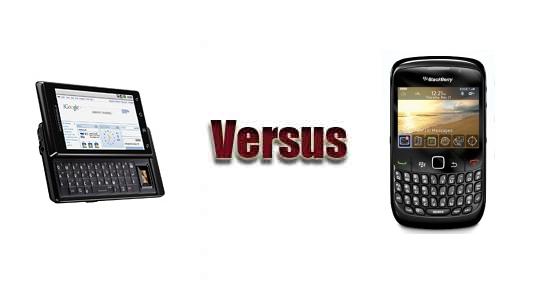Disclaimer: The historical references to the tragedy of World War II used in this post are exclusively intended for educational and illustrative purposes. No comment herein should be understood as any kind of support (political, social, cultural, even military) to any of the parties involved in that conflict. References are made at high level, objectively, and from a pure historical perspective.
In particular, we would like to apologize Léo Apotheker, as he is explicitly mentioned for heading HP as corporation. We acknowledge that, given his family’s background in those years (as has been published), he may be particularly sensitive to anything related to the events that struck the worlds the way they did.
In late 1944, when the USAAF and the RAF dominated the Western and Central Europe skies almost unopposed, they suddenly had to face a new kind of aircraft. Something really revolutionary, something based on what for them was, in the best case, a lot of paperwork from physic theoreticians. It took some time for them to realize what they were up to.
As it soon was to be painfully realized, Germany had finally made it for the so-called “secret weapons” that would change the tide of the war, and deliver, according to German propaganda of the time, final victory against the rest of the world. We talk about jet propelled fighters, from which the top representative probably was Messerschmitt’s Me262 Schwalbe (“Swallow”).

Interesting to note that Swallows were the most technologically advanced piece ever. Best specs, every single flight established a new aviation record. British or American pilots would not even actually “see” the enemy, so fast and high it flew. Virtually undetectable, thus. It was never defeated in the air. The only way Allies found to beat or capture enemy units were on ground (lack of fuel and/or pilots) or by pilot defection to the Allied lines.
It is very probable that had had the German Air Force a couple od hundreds of these aircraft as early as 1940, Great Britain would not have won the Battle of England, Russia would have surrendered, and the US would have never entered the war in Europe.
The plane came. But is was too late. In fact 1942 started with Germany strong enough to be likely to win the war, but when it ended it was obvious to all the world but Germany that the war was lost for them. It was just a matter of time.
Best quality, best features, best design, best performance, maximum possibilities. A clear winner on paper, useless as a bottle of shampoo for actor Yul Brynner,  because of several reasons:
because of several reasons:
First, it came too late. Germany was exhausted by late 1944, alone and surrounded by all the biggies, up to their home gates: the USA, the UK, the USSR, and representation from another forty-something nations from the free world. Clear dominant positions in the European skies of the big three.
Second, Germany lacked pilots. La crème of the German war pilots was already dead by then, or promoted to commanding ground posts, or dedicated to classical (ie propeller) planes. Even if part of the human force were to be transferred to jet units, there was no time nor resources for proper training.
Third, fuel was as scarce as ever. With no actual physical sources in the remaining areas controlled by the Germans, the little fuel available was synthetically produced, extremely expensive, and normally given priority to ground units trying to hold both the Eastern and Western fronts. Even worse, in some cases it went to other so-called “secret weapons”, like flying rockets V1 and V2.
Fourth, the German High Command made some key “positioning” mistakes, without clear guidance, or targets for those units. Clearly designed as fighters, they were eventually as much used as bombers, reconnaisance units and even transports.
HP has recently presented its WebOS 2.0.
Going through the details, one must admit it is impressive. A clear winner. Léo Apotheker has quite a number of reasons to feel well about this indeed. BUT:
First, would this not be too late? HP has spent fortunes on its former Smartphone line.based on dear Windows Mobile-no-matter-what-version, and the “secret weapon” is supposed to seek its place in skies which are heavily dominated by Android, IOS4 and eventually Win7 mobile (or Symbian, for the matter…).
Second, you need pilots to make the maximum of the units potential. You need apps… and app developers, call it trainers if you’d like. The “enemy” has them by the hundreds of thousands… and upping every day.
Third, the fuel these devices need is as well scarce. App developers will develop apps that are demanded, and demand for a new thing has to be created first. Back end R&D and strong support plus consultancy as well needs to stand behind, as ground personnel is needed to keep the planes in the air. All this to keep the right focus, not diverting priorities to other bombastic stuff that might in parallel happen to appear (storage, networking, software, whatever).
Fourth, Léo & Staff have to make sure positioning is right, and customer segments are addressed correctly. Corporate, Consumer, both? Tablets, smartphones, both?
Hurry up, Léo… but make sure the brains that you are putting in here should not oversee the basics.
Footnote: This post is dedicated to a good friend of ours that has the potential of the ME262 of the time, but every now and then gets confused about her own strategy and positioning to achieve goals. Differently from the original ME262 case, this person should understand that in this case, three years do not necessarily mean it is too late; even if it is not being yet realized, like Germans say, “Ende gut, Alles gut”…

 future of that industry, for the good or for the bad. Apple’s influence is actually tangible in our opinion.
future of that industry, for the good or for the bad. Apple’s influence is actually tangible in our opinion. When presidential elections come up in 2012, all the people who are today from 16 to 19 will be able to vote for the first time in their lives. So Republicans or Democrats that prepare those elections should consider all these teenagers as prospect voters and make sure they buy in even before they become actual voters.
When presidential elections come up in 2012, all the people who are today from 16 to 19 will be able to vote for the first time in their lives. So Republicans or Democrats that prepare those elections should consider all these teenagers as prospect voters and make sure they buy in even before they become actual voters.




 The not-really-so-successful first smartphone experience by this guys was windows mobile, who was quickly wiped out by Nokia and particularly Blackberry like the best football player in the grade at school usually takes the most glamorous cheerleader from her previous boyfriend.
The not-really-so-successful first smartphone experience by this guys was windows mobile, who was quickly wiped out by Nokia and particularly Blackberry like the best football player in the grade at school usually takes the most glamorous cheerleader from her previous boyfriend.







 So the news is not that much about bathroom-scale tsunamis, but about when HP will finally come up with something tangible in the tablet arena based on WebOS.
So the news is not that much about bathroom-scale tsunamis, but about when HP will finally come up with something tangible in the tablet arena based on WebOS. 


